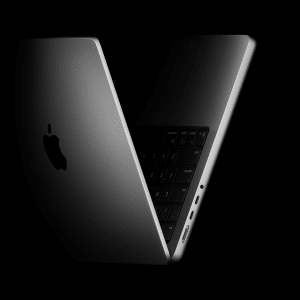Apple’s push into high-end gaming on the Mac is gaining momentum, as detailed in a recent interview with Apple marketing managers Gordon Keppel and Leland Martin. Central to this advancement is the transition from Intel processors to Apple’s own silicon, notably enhancing MacBooks’ performance-per-watt ratio. The introduction of the M3, M3 Pro, and M3 Max chips, equipped with hardware-accelerated ray tracing and mesh shading, marks a significant leap in graphics rendering capabilities, particularly beneficial for top-tier AAA games.
Gordon Keppel emphasized the impact of Apple silicon, stating, “Now, every Mac that ships with Apple silicon can play AAA games pretty fantastically. Apple silicon has been transformative of our mainstream systems that got tremendous boosts in graphics with M1, M2, and now with M3.”
A notable advantage of Apple silicon has been the unification of the hardware architecture across Mac, iPhone, and iPad, streamlining the game development process. Leland Martin noted the past complexities due to different GPU configurations, which have been resolved with the consistent Apple silicon platform, simplifying game porting across Apple devices. This is evident in games like Resident Evil Village, which was first launched on Mac, followed by iPhone and iPad releases.

The M3 chip family introduces Dynamic Caching, a feature that optimizes memory usage in real time, significantly boosting GPU performance for intensive applications and games. On the software front, macOS Sonoma has introduced a new Game Mode that enhances CPU and GPU performance during gaming, reduces AirPods audio latency, and improves input latency with popular game controllers by increasing the Bluetooth sampling rate.
Another leap forward for Mac gaming is Apple’s Game Porting Toolkit, which is designed to facilitate the porting of Windows games to macOS. This toolkit provides an emulation environment for developers to test their existing Windows games on the Mac, along with a Metal shader converter to streamline the conversion process. Martin highlighted the enthusiasm from developers and publishers like Kojima Productions and Annapurna Interactive Games about leveraging this toolkit.

This year saw several high-profile game releases on the Mac, including the Resident Evil 4 remake, Resident Evil Village, Stray, and Baldur’s Gate 3. Upcoming Mac launches include Death Stranding Director’s Cut and Assassin’s Creed Mirage.













